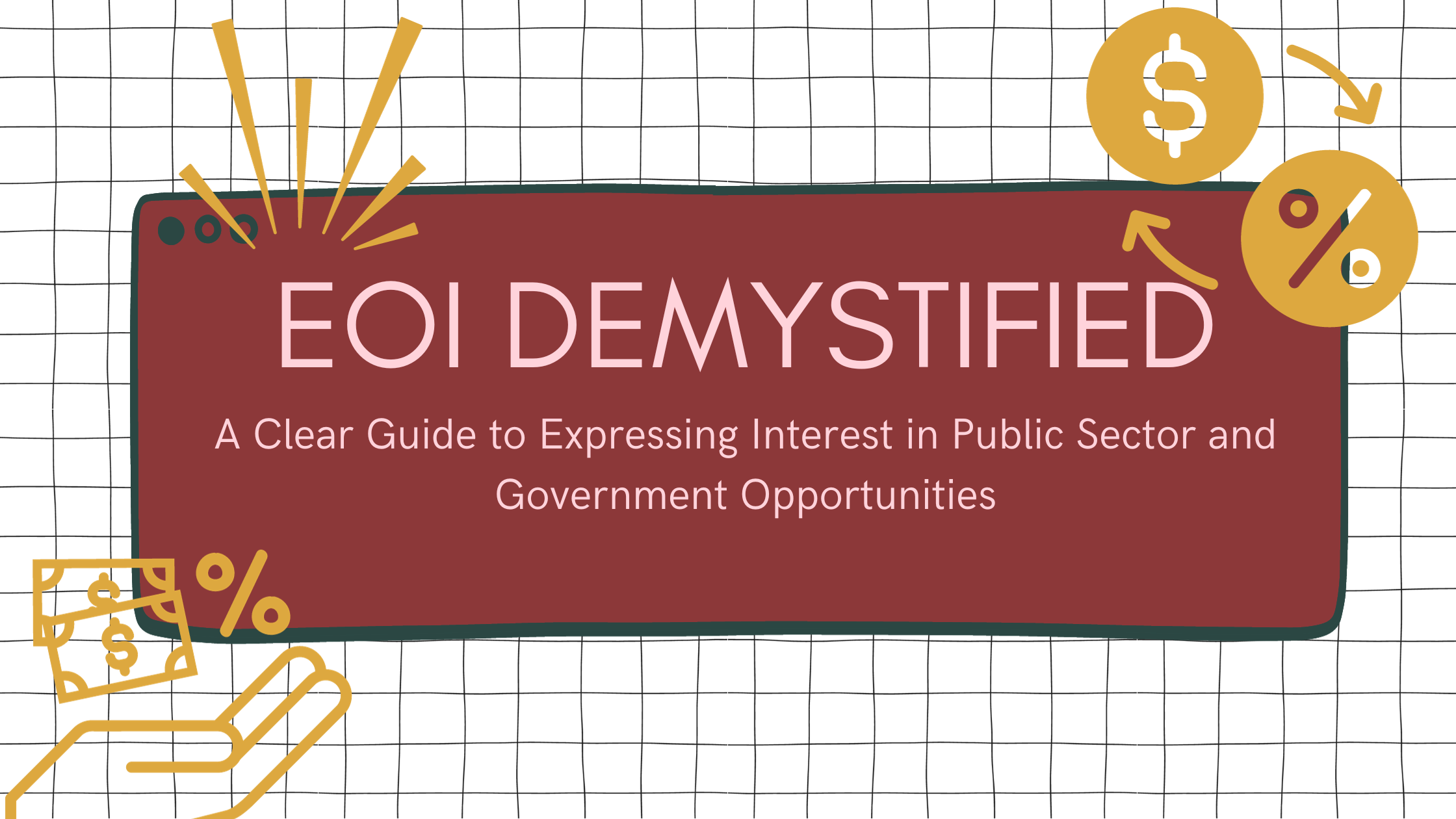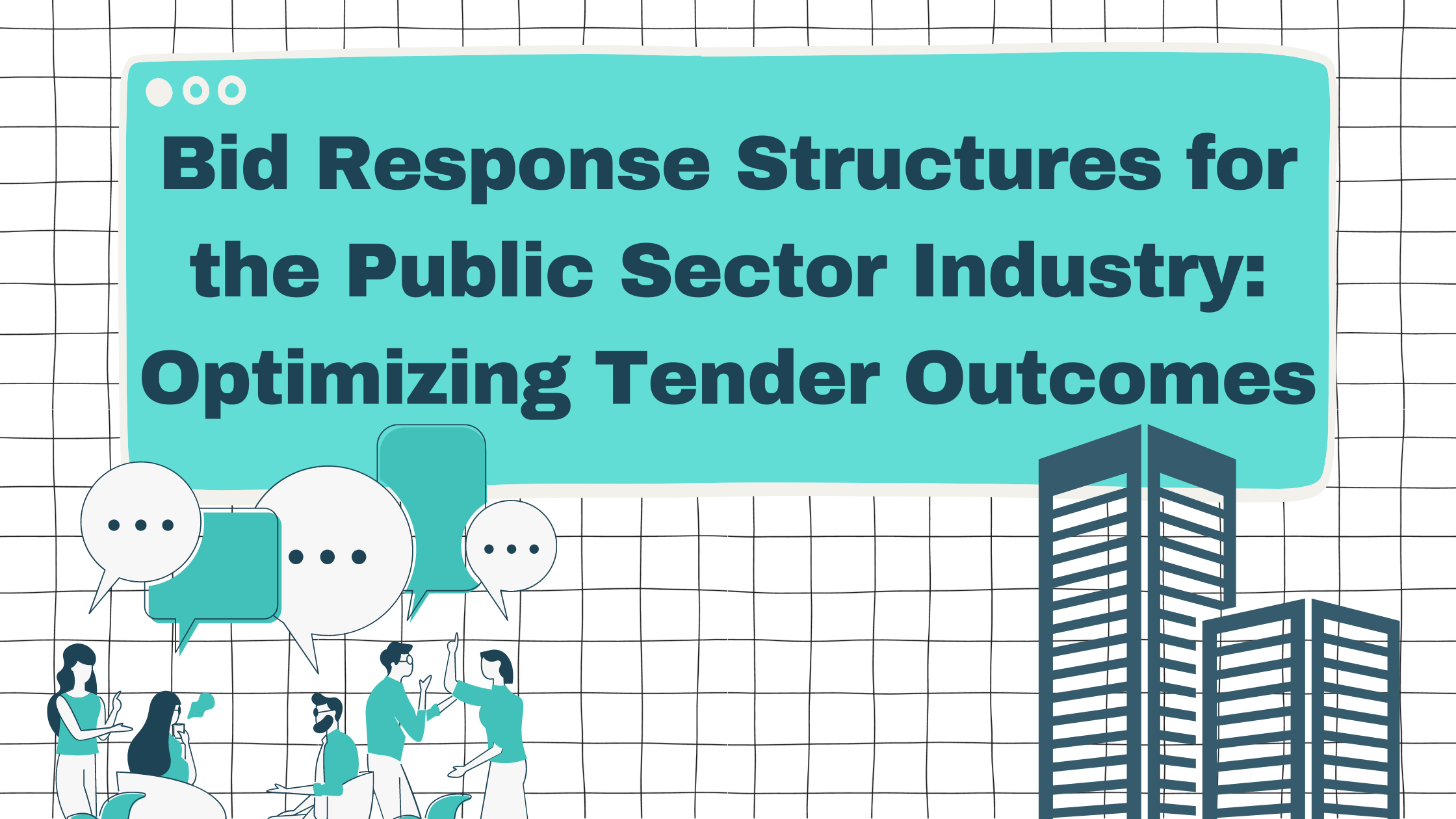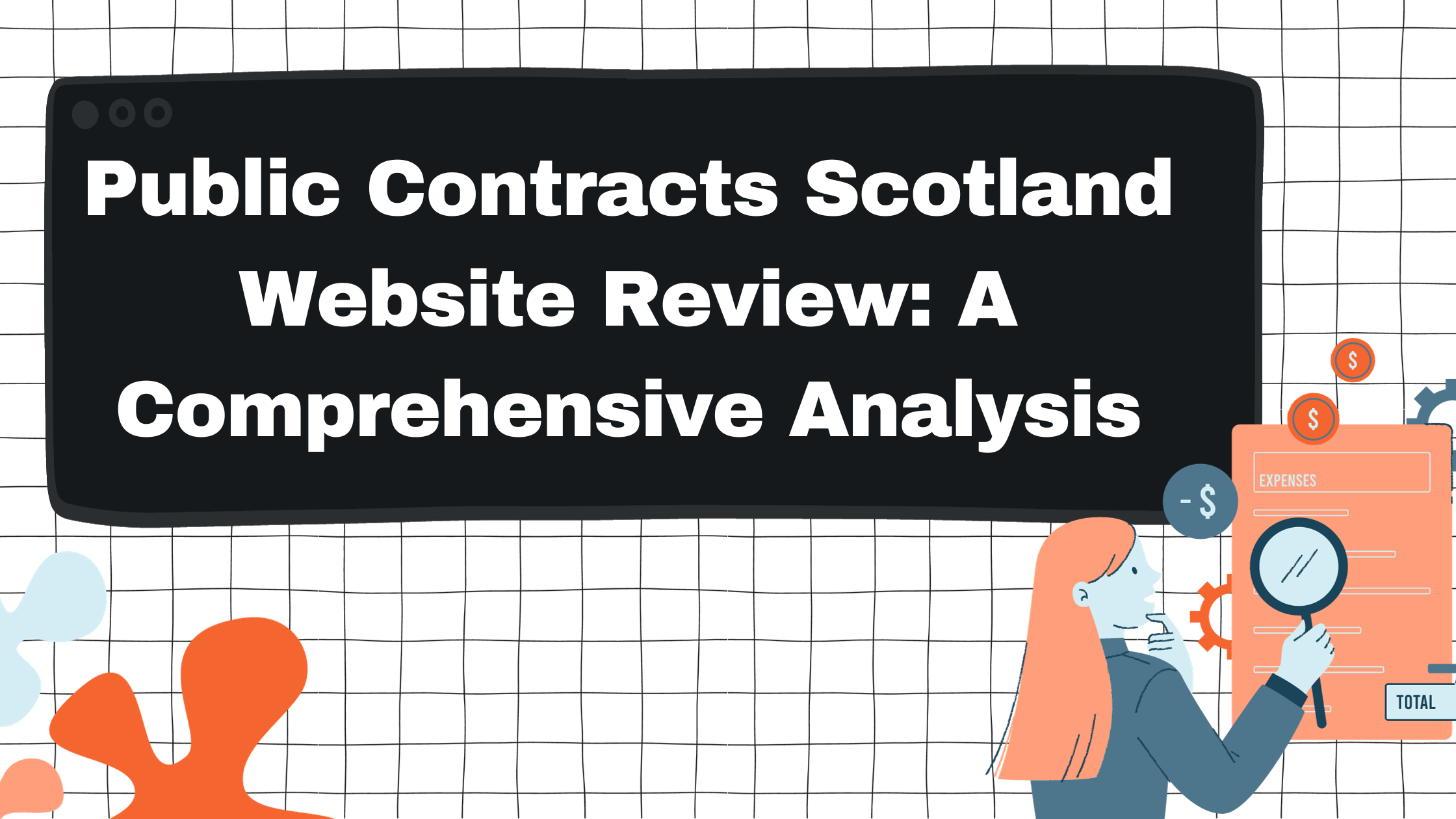Optimizing Success in Proposal and RFP Writing Services for Government Contracts

Need Help with Your Bid?
Get in touch by filling out the form and one of our advisors will be in contact.
Contact UsGovernment contract bidding is an intricate process that opens a plethora of opportunities for businesses to expand their horizons and secure substantial work. The primary step involves understanding the different types of government contracts available, including fixed-price, cost-reimbursement, and time-and-materials contracts, each with its own set of conditions and payment agreements. Winning these contracts can be transformative for businesses, yet many find the bidding process to be intimidating due to its competitive and structured nature.

Preparation is key to success in government contract bidding. I ensure that my business is registered with the appropriate government databases, such as the System for Award Management (SAM), which is fundamental for eligibility. Thoroughly researching active government solicitations through sources like Contract Finders provides me with valuable information on current opportunities. Crafting a compelling bid is an art; it requires a strategic approach to meet the government's stringent criteria while showcasing my business's unique qualifications and capabilities.
Key Takeaways
- Understanding the intricacies of different government contracts enhances bidding success.
- Preparation and research are fundamental in identifying and pursuing relevant contract opportunities.
- Strategic bid writing and alignment with government criteria are crucial for winning bids.
Understanding Government Contracts
https://www.youtube.com/watch?v=uhv_GE0B-Ac&embed=true
In my experience with the intricacies of government contracts, I鈥檝e found it's essential to grasp their diverse types and the procurement process. This knowledge paves the way for success in the public sector landscape, which is heavily regulated and competitive.
Types of Government Contracts
Government contracts are formal agreements involving various transactions, from routine purchases to large-scale projects across sectors such as central government, local authorities, and the NHS. I categorize them into three primary types:
- Fixed-Price Contracts: Here, the government agrees to pay a set amount for the delivery of goods or services. It's suitable when costs are predictable.
- Cost-Reimbursement Contracts: These allow for the payment of direct costs plus an additional fee. They're often used when risks or total costs are not clearly defined.
- Time and Materials Contracts: If the full scope isn't clear, this type fits well, as payment is based on direct labor hours at fixed hourly rates and actual costs for materials.
Notably, the Crown Commercial Service often utilizes framework agreements, enabling multiple suppliers to deliver goods or services over a certain period.
Understanding the Procurement Process
The procurement process is the backbone of acquiring public sector contracts. It typically involves these critical steps:
- Preparation: I start by registering my business with relevant portals where tender notices are published, like the UK's Contract Finder for central government and public sector contracts.
- Sourcing: Official publications list opportunities, such as framework agreements and explicit contracts for entities like local authorities or the NHS.
- Bidding: Crafting a bid requires aligning my offerings with the request for proposal (RFP) instructions and evaluation criteria. It鈥檚 not just about price; meeting the government's broader strategic goals is critical.
- Evaluation: After submission, my bid enters a review where it competes on criteria beyond just cost, such as past performance and technical capabilities.
- Awarding: Winning a bid leads to contract finalization with the government or relevant authority. If unsuccessful, I seek feedback to refine my approach for future opportunities.
Delving into these two areas builds a solid foundation for my approach to securing government contracts, fostering a competitive edge in the multifaceted public sector market.
Preparation for Bidding

When preparing to bid for a government contract, I prioritize a thorough approach that includes extensive research, pooling together a skilled bid writing team, and confirming my company's eligibility and compatibility with the project requirements.
Research and Planning
Research is the cornerstone of my bid preparation strategy. I carefully analyze the tender document, identifying specific requirements that align with my company's strengths and values. A meticulous plan forms the foundation of a compelling bid, as it allows me to structure my response in a clear and concise manner, ensuring all the critical elements are addressed.
Assembling a Bid Writing Team
I understand that a cohesive bid writing team is essential. This team is composed of individuals with complementary skills: a bid writer to articulate the value proposition effectively, a project manager for keeping the entire process on track, and subject matter experts (SMEs) who bring indispensable technical know-how to the table. By harnessing a holistic blend of experience and expertise, my team can produce a meticulous and persuasive bid.
Ensuring Eligibility and Compatibility
To prevent any disqualification, I verify my company's eligibility for the contract, following all set criteria laid out in the bid solicitation. I review past performance and necessary certifications, demonstrating our compatibility and ability to meet the contract's requirements. This level of scrutiny extends to all aspects, from financial solvency to relevant experience, ensuring that my company is not only eligible but also a suitable match for the government's needs.
The Tendering Process
The tendering process is my clear path to engaging with public sector procurement. This methodical procedure ensures that I can compete fairly for contracts by following specific steps and meeting set deadlines.
Finding Tender Opportunities
I find tender opportunities by monitoring platforms such as Contracts Finder, which lists information on contracts worth over 拢12,000. This central database is crucial for finding a tender that fits my business profile and capabilities. It's important for me to be proactive and regularly search for relevant public sector procurement notices to stay ahead in the competitive government contracting landscape.
Tender Documents and Submission
Once I identify a suitable opportunity, I request the tender documents. These documents typically include an invitation to tender (ITT), which outlines all the necessary details such as scope, timeframe, evaluation criteria, and instructions for submitting a tender response. My submission must be comprehensive and adhere to the required format, showcasing how my offer meets the tender's requirements. I ensure that my bid is well-structured, clear, and submitted before the deadline to be considered for the contract.
Adhering to the specified frameworks and understanding dynamic purchasing systems can also be key factors in making my submission successful. Therefore, I familiarize myself with these terms to enhance my chances of winning the bid.
Bid Writing Strategies
When I approach bid writing, I focus on crafting a message that speaks directly to the needs of the government while aligning with my business's strengths. Key to success is persuading the decision-makers of the unique value I can deliver through a clear, robust, and articulate proposal.
Crafting a Persuasive Bid
The first element I consider is how to effectively communicate my offer. I begin with thorough research to understand the contract's requirements, ensuring I can address each point with precision. Communication is paramount; I use positive language to highlight my capabilities and differentiate myself from competitors.
- Research: Gain a deep understanding of the bid requirements and criteria.
- Alignment: Fit my proposal's messaging with the contract's goals.
- Clarity: Make my value proposition unmistakable.
- Precision: Address specific requirements point by point.
After drafting the bid, I meticulously proofread the document. This step is not just about correcting errors; it's also a quality assurance process to refine the language and improve readability.
Incorporating Social Value and Sustainability
Social value and sustainability are increasingly critical in government contracts. When I write a bid, I integrate these elements by showcasing the positive social impact my business can have, which goes beyond mere cost savings and taps into broader community benefits.
- Social Value: Outlining how my services contribute to the local community or society at large.
- Sustainability: Demonstrating a commitment to environmental responsibility.
For every contract, I show how I can deliver value for money. I'm not just offering services; I'm proposing a partnership that fosters sustainable development and social well-being, which nowadays can often be a decisive factor in the bidding process.
Incorporating these elements with a competitive dialogue approach allows me to get feedback and fine-tune my proposal, ensuring it fits the contracting agency鈥檚 vision for social responsibility as well as functional requirements.
After Submission: Feedback and Improvement

Once my bid submission is complete, I pay close attention to the feedback I receive and use it to fuel continuous improvement. My aim is to refine my bidding strategies and enhance the quality of my proposals.
Understanding Feedback
I recognize that feedback is a crucial component of the bidding process. After I place a bid on a government contract, I actively seek out feedback, irrespective of whether I win or lose. This feedback helps me understand the government agency鈥檚 evaluation criteria and where my bid ranked in terms of a quality score. For example, examining comments on my bid's strengths and weaknesses allows me to adjust my future proposals to better meet the agency's needs.
Continuous Improvement and Case Studies
I believe in the power of continuous improvement, analyzing case studies from successful bids to identify winning strategies. I look at statistics detailing the performance of various bids and incorporate testimonials which can serve as evidence of my organization鈥檚 capability. Through diligent study of past outcomes, I update my procedures and strategies, ensuring that each bid is stronger than the last.
By integrating this evidence-based approach into my bidding process, I enhance the overall effectiveness of my bids, increasing the chances of securing government contracts over time.
Frequently Asked Questions
In addressing these FAQs, I aim to impart a foundational understanding on how to navigate the terrain of government contract bidding and strategize for success.
What are the key steps to take when bidding on a government contract?
I start by ensuring that I understand the requirements detailed in the tender documents. Then, I carefully structure my proposal to align with the contracting agency's objectives, demonstrating how my services or products meet their needs.
What criteria typically determine the winner of a government tender?
The winning bid often satisfies a combination of factors including price competitiveness, compliance with technical specifications, and evidence of past performance. I focus on showcasing my value proposition, ensuring it resonates with these core evaluation criteria.
Can small businesses compete effectively in government contracting?
Yes, small businesses can and do win government contracts. The key is to leverage resources such as the Contracts Finder which lists opportunities and understand the support mechanisms in place to aid smaller entities in the competition.
How does one find government contracts that are up for bidding?
I search for available contracts using platforms like Contracts Finder, where I can find information about contracts above a certain threshold, or I utilize sector-specific databases that cater to my business鈥檚 expertise.
What are the common mistakes to avoid in government contract bidding?
Bidders often err by not tailoring their proposal to the buyer鈥檚 specific needs or by missing key administrative requirements in their submission. I take care to avoid these pitfalls by thoroughly reviewing all tender documents and adhering to outlined procedures.
What strategies can increase the chances of winning a government tender?
I increase my chances by emphasizing my track record, providing a detailed and accurate bid, and by articulating the distinct advantages of my offer. Continuous improvement through feedback and learning from unsuccessful bids is also a critical strategy for long-term success.
Ready to start your search?
Get in touch by filling out the form to the right and one of our advisors will curate a personalised selection for you.
Get in touchBlogs. Guides. Helpful advice.

Mastering Proposal and RFP Writing for Government and Public Sector Opportunities

Proposal and RFP Writing Services: Enhancing Public Sector Tender Outcomes

.svg)